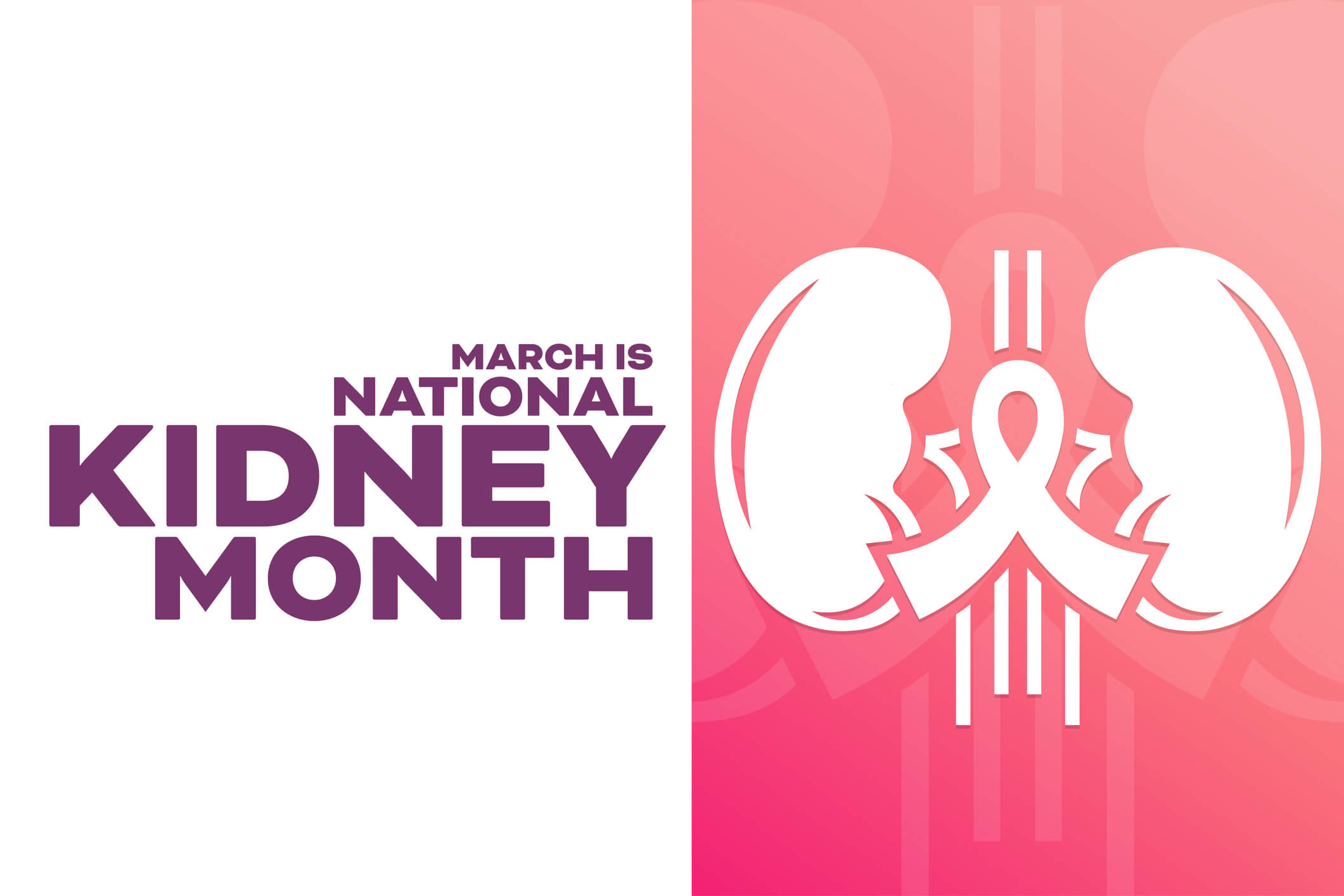
Keeping Your Kidney Health Top of Mind
You may not think about your kidneys, but they play a vital role in your overall health by removing waste and fluids from your blood.
Kidney disease is often referred to as a “silent disease” because there are usually no symptoms during its early stages. An estimated 37 million Americans suffer from chronic kidney disease (CKD) but many are unaware since symptoms don’t appear until it’s advanced.
Symptoms of kidney disease can include nausea, vomiting, loss of appetite, fatigue, altered urine output, muscle cramps, itching, swelling of feet and ankles, and confusion.
It is important to know if your kidneys are struggling before you have symptoms to give yourself the opportunity to make changes.
Steps to Help Protect Your Kidneys:
Know Your Risk: Even if you are healthy, if you are over 60 or have risk factors like diabetes, high blood pressurec, or heart disease, consider talking with your doctor about getting tested for kidney disease. Your doctor can use your test results to help you develop a kidney care plan. Having a plan can help reduce your risk for serious health problems such as heart attack and stroke.
Schedule Your Test: Your doctor will use two tests to check for kidney disease. A urine test to check for damage and a blood test to check how well your kidneys are removing waste from your blood. If the tests show signs of kidney damage, your doctor may refer you to a kidney specialist, known as a nephrologist, or recommend follow-up testing.
Make Lifestyle Changes: Working with your doctor, you can create a treatment plan that fits your lifestyle, mobility, health status, and dietary needs. Your plan may include making changes such as working alongside a registered dietician to create a meal plan, or quitting smoking.
Other preventative measures you can take to keep your kidneys in tip-top shape include eating a healthy diet, avoiding, or limiting the use of salt, alcohol, and tobacco.
Interested in learning more about your kidney health? Read tips for avoiding chronic kidney disease here.


